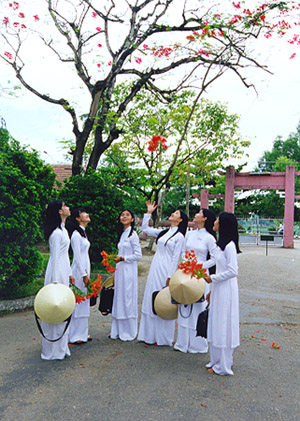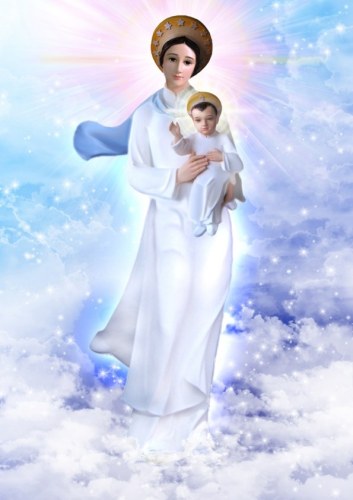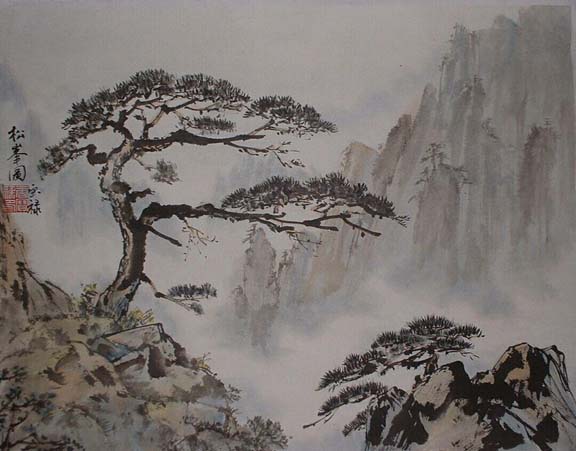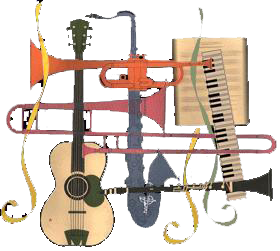Nguyễn Công Trứ And The Art Of Retirement
Nguyễn Công Trứ (1778-1858) is the prototype of the traditional Vietnamese man of letters; he was an accomplished administrator, a successful warrior, a poet, and even a composer of traditional Vietnamese music for geishas (ca trù). The son of a mandarin, he was a late bloomer. He passed his civil service examination only after the third trial, at the age of 42, having to wait for 6 years after each failed attempt. He eventually got his Giải Nguyên (master’s degree) and had an illustrious career in public service until his retirement in 1848, at the age of seventy.
However, his poetry in Sinitic Vietnamese (Hán Việt) and in Nôm (colloquial Vietnamese) appears to be the most important and enduring part of his legacy. It reflects his different moods and philosophic considerations as he belatedly achieved his academic goals, experienced the extreme upheavals of his career and finally found contentment and playfulness in the art of growing old. There was the initial youthful enthusiasm with the ideal of the Confucian learned gentleman (kẻ sĩ):
“Nhân sinh tự cổ thùy vô tử
Lưu thủ đan tâm chiếu hãn thanh.”
(Văn Thiên Tường, 1236-1283)
(Since antiquity, has any human escaped death?
Leave a red heart that shines through history!
Wen Tianxiang, 1236-1283 quoted in Nguyen Cong Tru’s famous poem "Chí Nam Nhi")
It was followed by indifference and disillusionment with “fame and money” (danh lợi). When demoted to the lowest rank in the army (lính thú), he remarked “there is no glory in being a general, so there is no shame in being a private.” His retirement from “the busy and gaudy places” (chốn phồn hoa) allowed him to appreciate nature and “simple” pleasures in life like riding an ox instead of a horse and marrying a young concubine when he was seventy-three (when his bride asked him about his age, he famously replied: “fifty years ago, I was twenty three.”)
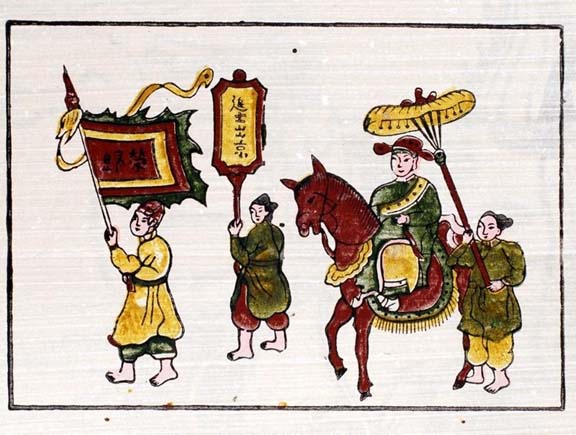
Vinh quy bai to (Tranh Dong Ho)
Thoát vòng danh lợi
(Out of the fame and money loop)
Nguyễn Công Trứ
Chen chúc lợi danh đà chán ngắt
Hustling for fame and money, what a bore
Cúc tùng phong nguyệt mới vui sao
Mums, pines, moon and wind, so much joy
Đám phồn hoa trót bước chân vào
Inadvertently I had stepped into busy city life
Sực nghĩ lại giật mình bao xiết kể.
Just thinking about it startles me to the core
Quá giả vãng nhi bất thuyết, (1)
Let’s not talk about things past
Cái hình hài làm thiệt cái thân chi.
Don’t let earthly impulses hurt our well being
Cuộc đời thử gẩm mà suy,
Let’s ponder life to find the truth
Bạn tùng cúc xưa kia là cố cựu.
Mums and pines have always been old friends
Hẹn với lợi danh ba chén rượu,
Three cups of wine to put off fame and money till later
Vui cùng phong nguyệt một bầu thơ,
A gourd of poetry to enjoy with moon and wind
Chuyện cổ kim so sánh tựa bàn cờ,
History is just like a chess game
Riêng vui thú giang sơn phong nguyệt.
By myself, I enjoy rivers, mountains, the moon and winds.
Mặc xa mã thị thành không dám biết,
Coaches and horses, cities, I dare not think of
Thú yên hà trời đất để riêng ta.
The pleasure of life in the mist, heaven and earth for me alone
Nào ai, ai biết chăng là ?
Someone out there, do you understand?
(1) Lấy ý ở sách Luận Ngữ: việc đã qua rồi không nên nhắc nữa.
Painting by Paul Tong
Cây thông
Nguyễn Công Trứ
(The pine tree)
Ngồi buồn mà trách ông xanh,
In boredom, I blame Heaven
Khi vui muốn khóc, buồn tênh lại cười.
Excitement brings tears, with ennui comes a smile,
Kiếp sau xin chớ làm người,
In my next life, don’t let me be human
Làm cây thông đứng giữa trời mà reo.
I’d like to be a pine tree, rustling in the sky
Giữa trời, vách đá cheo leo
In the sky, on a rocky precipice
Ai mà chịu rét thời trèo với thông
Whoever wants the cold, climb up here with me.
(Translation by Hien V. Ho)
8/28/2008

